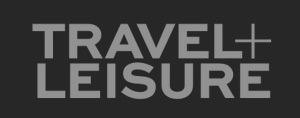Cookies Policy
In compliance with current legislation on personal data protection (Ley 34/2002, 11 July, hereinafter LOPD), Canard S.A informs you that our website uses cookies to differentiate between distinct users who access it.
Cookies allow us to offer relevant information on our products and services and to provide you with a good experience when you browse our website.
What are cookies?
A cookie is a small alpha-numeric archive which is stored on the hard drive or in the browser of a computer, tablet, smartphone or similar device when it browses the internet.
What do Cookies do?
Cookies allow us to offer relevant information on our products and services and to provide you with a good experience when you browse our website, such as storing your language or the currency of your country. They also help those responsible for the websites to improve the services they offer, thanks to the statistical information collected through them.
The main purpose of a cookie is to identify users and possibly prepare customized Web pages or to save site login information for you.
When you enter a web site using cookies, you may be asked to fill out a form providing personal information; like your name, e-mail address, and interests. This information is packaged into a cookie and sent to your Web browser, which then stores the information for later use. The next time you go to the same Web site, your browser will send the cookie to the Web server. The message is sent back to the server each time the browser requests a page from the server.
A Web server has no memory so the hosted Web site you are visiting transfers a cookie file of the browser on your computer´s hard disk so that the Web site can remember who you are and your preferences. This message exchange allows the Web server to use this information to present you with customized Web pages.
The majority of the cookies we use are of the analytic type, which count number of users, help us to understand how they navigate our site and improve the way it works, for instance by making search results more accurate. We also use certain cookies for publicity purposes, so that we can more efficiently manage the presentation of our products on other platforms where users may request services, such as Facebook.
None of our cookies store any personal information such as your name or address Please be aware that restricting cookies may impact on the functionality of the British Council website(s).
What kind of Cookies do we use?
| Purpose | Description |
| Performance cookies | These cookies allow us to count visits and circulation sources in order to measure and improve the performance of our website. They help inform us which pages are more or less popular and visited, and how users browse the site. All the information these cookies collect is aggregated and, therefore, anonymous. In short, these cookies allow us to know when you visited our website and to assess whether it worked correctly. |
| Functional cookies | These cookies allow the site to offer improved performance and personalisation. They may be established by us or by third parties whose services we have added to our pages. Without this type of cookies, some of our services would not work correctly. |
| Strictly necessary cookies | These cookies are necessary for the website to function and cannot be disabled on our systems. They are typically configured to respond to actions you have taken to receive services, such as adjusting your privacy preferences, logging into your account, or completing forms. You can configure your browser to block or alert the presence of these cookies, but some parts of the website will not work. These cookies do not store any personally identifiable information. |
| Targeting cookies | These cookies may be on the entire website, placed by our advertising partners. They do not store personal information directly, but are based on the unique identification of your browser and Internet access device. The function of this type of cookies is to provide information to these advertising partners to create a profile of your interests in order to show you relevant ads on other sites. |
| Social media cookies | These cookies are set by a series of social networking services that we have added to the site to allow you to share our content with your friends and networks. They are able to track your browser through other sites and create a profile of your interests. This may modify the content and messages you find on other web pages you visit. If you do not allow the use of these cookies you will not be able to see or use these sharing tools. |
| Gestión | |
| First party cookies | Installed by our own website.First party cookies are those cookies that originate from(or be sent to) the Web site you are currently viewing. These types of cookies will contain information about your preferences for that particular Web site. |
| Third party cookies | Installed by websites which don’t belong to us. For instance, where we include content from Youtube or Flickr on our own website or buttons which users can use to share content on social networks, a user accessing such content from our own website may have cookies added from these third parties. Canard S.A doesn’t control these third party cookies and so the user must review the cookie policies of these other websites for further information. |
Turning off Cookies
You can block cookies by activating the setting on your browser that allows you to refuse the setting of all or some cookies. Below are links to the ‘Help’ pages of major browsers which explain how you can do this. However, if you use your browser settings to block all cookies (including essential cookies) you may not be able to access all or parts of our site or any other websites that you visit.
For example if you shop online, many e-commerce shopping carts that have been implemented with cookies will not work. Sites you frequently visit which enable you to personalize content also will not show your preferences when you visit if you delete or disable that cookie.
Most cookies, despite some misconceptions, are legitimate files an will not invade you privacy. Once you get in the habit of reviewing the cookies associated with your browser and manage them on your own by way of deleting malicious cookies or trying different browser privacy settings, you can still keep the good cookies that make surfing a breeze.
How can I set my preferences?
You can allow, block or delete cookies installed on your computer by setting options of your browser. In the case of blocking, certain services that use cookies will not be available to you. Here are links where you will find information on how you can turn your preferences in major browsers:
Finally, can you go to the website Your Online Choices where in addition to finding useful information, you can configure, provider by provider preferences on third-party advertising cookies













